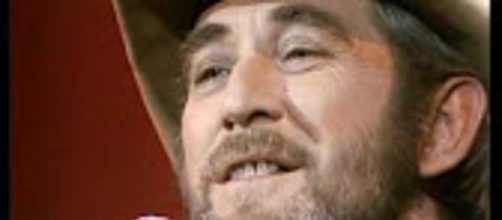The passing of Don Williams last week seemed to be hushed amid the flurry of coverage of two, and at one point, three hurricanes menacing the shores of the United States. The sudden and unexpected death of Troy Gentry of Montgomery Gentry from a helicopter crash also shocked and stunned country fans at nearly the same moment. Don Williams would probably feel just fine about not being the focus of a big fuss. If ever there was an artist who truly saw himself as the common man, blessed richly in the simple joys of life, it was Don Williams, and that is what the 78-year-old’s rich musical treasury reflects.
Friends and contemporaries took paused to pay words of tribute to Don Williams, showing that his music has guided many through life's storms.
Real from the start
No specific details are available, apart from knowing that Williams passed after a short illness, according to his publicist, Kirt Webster. Although widely recognized for his masterful turn on Danny flowers’ “Tulsa Time,” later to be covered by Eric Clapton, Don Williams was born in Floydada, Texas on May 27, 1939. Williams made “Tulsa Time” the trophy taker for Single of the Year from the Academy of Country Music in 1978 when he was also named Male Vocalist of the Year.
Growing up in Portland, Texas, Williams learned guitar from listening to the radio, having a natural gift for picking up melodies and chords.
Don Williams may have recognized his musical gifts early, but he didn't stay away from the working man's life. He worked as a bill collector, oilfield worker, and even drove a bread truck. Those street-level understandings come through every tone of Don Williams song and so does a very real-life love. Williams married Joy Bucher in April 1960. She was his only bride. Classics like “The Ties That Bind” and “You're My Best Friend” by Williams have become wedding classics for countless couples now because the authentic heart of the song is reflected in the life of the singer.
Don Williams had a natural affinity for music that crossed genres. While in Corpus Christi in the 60s, the musician founded the Pozo Seco singers with Lofton Cline and Susan Taylor.
Their style embraced folk, pop, and country very effectively, and earned them a loyal following and a Top Ten hit, “Time,” before disbanding in 1969. It wasn't long before Don Williams found his long-running stride through the 70s and 80s, including “I Believe in You,” that crossed over on the Billboard 100 and adult contemporary charts.
More than words
Don Williams gave his last performance last year, and surely left the same kind of memory that he was known for at every one of his concerts. Wearing his familiar tasseled and very well- worn hat, he would frequently come on a stage with just a stool, put down his coffee cup, and begin a banter with the audience. Topics would come up from anniversaries to being fired, and there was always an authentic empathy reflected in Don Williams’ reply.
The conversation would lead into a song like “Lord, I Hope This Day Is Good,” or “If Hollywood Don’t Need You (Honey, I Still Do)” in hopes of lifting the moment or lightening the load, just for the night.
Superstar, Keith Urban, was drawn into country music by his father's Don Williams albums, and his touching in an Instagram post included the performance clip of “Imagine That” from 2012, which features the two artists genuinely connecting between the lines. “I cannot put into words the depth of sadness I feel right now, hearing of Don Williams’ passing,” Urban movingly expresses. The recollection that Keith Urban feels from Don Williams songs is inescapable. “That feels like my childhood,” he confirms.
Farewell, the great Don Williams. 'Those Williams boys, they still mean a lot to me/ Hank & Tennessee.' & Don, too. https://t.co/gaXjor8Ibh
— rosanne cash (@rosannecash) September 8, 2017
Rosanne Cash was another who offered very personal and touching words, posting on Twitter, “Farewell, the great Don Williams,” and slightly modifying a familiar song line. “Those Williams boys, they still mean a lot to me, Hank, & Tennessee, & Don, too,” wrote Cash.
Don Williams left more than his roster of 17 number one songs, he left every seeking heart of a fan a hope of a brighter day. He maintained his status as both hero and friend, never losing credibility. Kyle Young, CEO of the Country Music Hall of Fame, describes that the venerated artist’s music “will forever be a balm in troublesome times.” Troublesome times is certainly an apt description for the trials that millions are facing to the storms of life now, and more than any honor, Don Williams would cherish hearing his son the radio, making someone remember how to smile.


